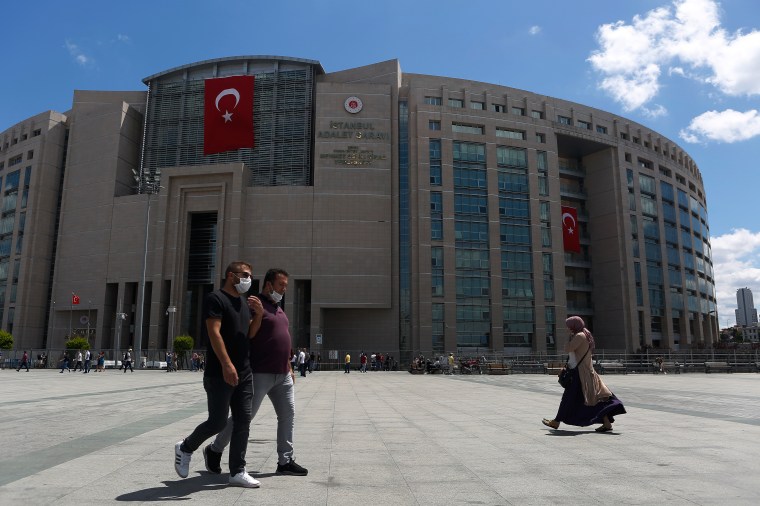Istanbul, January 10, 2022 – Turkish authorities should not contest journalist Rojhat Doğru’s appeal, and should cease sentencing members of the press to lengthy jail terms for their work, the Committee to Protect Journalists said today.
On January 6, the Eighth Diyarbakır Court of Serious Crimes sentenced Doğru, a Turkey-based camera operator who covered conflict in the Kurdish areas of Iraq and Syria, to life in prison for “attempting to disrupt the unity of the state,” according to news reports and court documents that CPJ reviewed.
The court also issued an arrest warrant during that January 6 hearing, at which Doğru was not present, those reports said; CPJ was unable to immediately determine whether he had been taken into custody as of today.
Resul Tamur, the journalist’s lawyer, said that he planned to appeal the verdict, according to those reports.
“The harsh life sentence given to journalist Rojhat Doğru is unusual and troubling even by the standards of the Turkish justice system, which has repeatedly pursued terrorism cases and draconian penalties against members of the press,” said Gulnoza Said, CPJ’s Europe and Central Asia program coordinator, in New York. “Turkish authorities should not pursue Doğru’s arrest, and should not contest his appeal.”
Doğru has worked for several outlets covering Kurdish areas in Iraq and Syria, and was working for Kurdistan Gali TV when he documented 2014 protests in Kobane, a Kurdish town in Syria, for which he won an award from the Southeastern Journalists Association, a Turkish press group.
The court, in the southeastern city of Diyarbakır, also sentenced Doğru to an additional 10 years and 10 months in prison for attempted murder and another 15 months for making terrorist propaganda, according to those news reports, which said that the implementation of the propaganda verdict had been postponed.
The propaganda, murder, and unity indictments were merged into one trial, during which authorities presented evidence including a photo Doğru posted to his Facebook page from an area in Iraq then controlled by the Kurdistan Worker’s Party (PKK), a group that is banned in Turkey, according to those court documents, which said that Doğru maintained he was in that area as a reporter. CPJ was unable to locate that Facebook post.
Authorities also alleged that Doğru’s phone number was found in the possession of a suspect in a terrorism investigation, a note on the body of a PKK member mentioned the name “Rojhat,” and that the journalist had made incriminating phone calls and money transfers, according to those news reports and court documents.
A witness also presented testimony alleging that Doğru was seen with a weapon during the Kobane protests, according to those documents. In an interview published before the verdict was issued, Doğru said he covered those protests as a journalist, and he denied that he had “a camera in one hand and a gun in the other” as the witness claimed.
He also said in that interview that the prosecution considered his journalistic activity to be terrorism.
CPJ emailed the Diyarbakır chief prosecutor’s office for comment, but did not immediately receive any reply.
